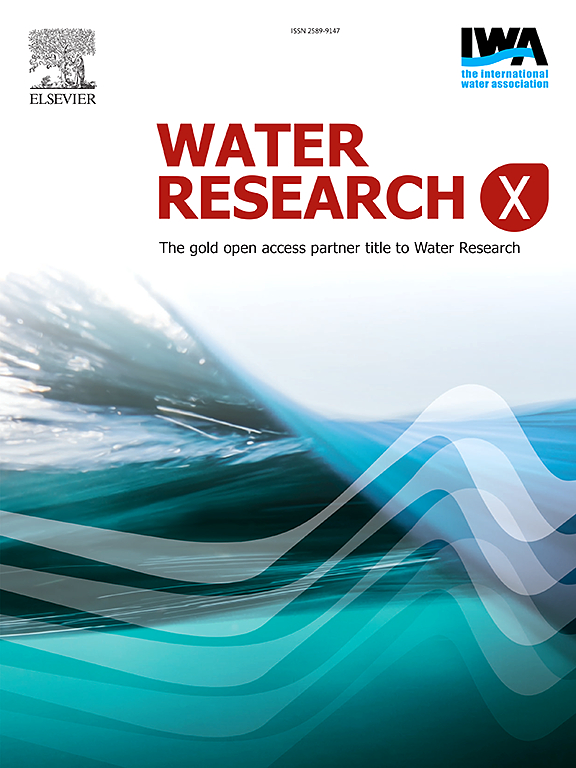Long-term multivariate water quality forecasting for sustainable aquaculture management
IF 8.2
2区 环境科学与生态学
Q1 ENGINEERING, ENVIRONMENTAL
引用次数: 0
Abstract
Accurate water quality prediction is essential for intelligent aquaculture management, enabling timely intervention, risk mitigation, and sustainable resource use. Key parameters such as dissolved oxygen, chlorophyll-a, and pH are influenced by complex spatiotemporal dynamics, making long-term forecasting particularly challenging in high-density aquaculture systems. Traditional methods struggle to balance local details and global trends, while circadian rhythms, feeding cycles, and seasonal shifts cause dynamic dependencies and distribution drift. To address these issues, we propose a novel deep learning framework with three core components: (1) a multi-scale decomposition module with time–frequency enhancement, which removes cross-scale redundancy, suppresses noise, and integrates local–global features via hierarchical decomposition and feature reorganization; (2) an adaptive sequence perception attention mechanism based on graph learning, which captures dynamic variable dependencies and models spatiotemporal interactions, including environmental coupling and aquaculture disturbances; and (3) a GRU-MoE network with a dynamic expert selection strategy that adjusts to data characteristics, mitigating distribution drift caused by human interventions like feeding and oxygenation. Extensive experiments on four real-world water quality datasets show the proposed method outperforms six deep learning baselines, achieving an average MAE reduction of 53.17%, RMSE reduction of 51.68%, improvement of 0.4945, and KGE improvement of 0.1979. Furthermore, Kolmogorov–Smirnov test results confirm the model’s ability to recover real data distributions and their temporal evolution. This high-precision long-term prediction method enhances aquaculture system resilience, reduces risks from water quality fluctuations, and provides a robust foundation for informed decision-making and sustainable aquaculture management.
水产养殖可持续管理的长期多元水质预测
准确的水质预测对智能水产养殖管理至关重要,有助于及时干预、减轻风险和可持续利用资源。溶解氧、叶绿素-a和pH等关键参数受复杂的时空动态影响,使得高密度水产养殖系统的长期预测尤其具有挑战性。传统方法难以平衡局部细节和全球趋势,而昼夜节律、喂养周期和季节变化导致动态依赖和分布漂移。为了解决这些问题,我们提出了一个新的深度学习框架,该框架包含三个核心组件:(1)具有时频增强的多尺度分解模块,该模块通过分层分解和特征重组去除跨尺度冗余,抑制噪声,并集成局部-全局特征;(2)基于图学习的自适应序列感知注意机制,该机制捕获动态变量依赖,并对包括环境耦合和水产养殖干扰在内的时空相互作用进行建模;(3)具有动态专家选择策略的GRU-MoE网络,该策略可根据数据特征进行调整,减轻人为干预(如喂养和氧合)造成的分布漂移。在4个真实水质数据集上进行的大量实验表明,该方法优于6条深度学习基线,平均MAE降低53.17%,RMSE降低51.68%,R2提高0.4945,KGE提高0.1979。此外,Kolmogorov-Smirnov检验结果证实了该模型恢复真实数据分布及其时间演变的能力。这种高精度的长期预测方法增强了水产养殖系统的复原力,降低了水质波动带来的风险,并为知情决策和可持续水产养殖管理提供了坚实的基础。
本文章由计算机程序翻译,如有差异,请以英文原文为准。
求助全文
约1分钟内获得全文
求助全文
来源期刊

Water Research X
Environmental Science-Water Science and Technology
CiteScore
12.30
自引率
1.30%
发文量
19
期刊介绍:
Water Research X is a sister journal of Water Research, which follows a Gold Open Access model. It focuses on publishing concise, letter-style research papers, visionary perspectives and editorials, as well as mini-reviews on emerging topics. The Journal invites contributions from researchers worldwide on various aspects of the science and technology related to the human impact on the water cycle, water quality, and its global management.
 求助内容:
求助内容: 应助结果提醒方式:
应助结果提醒方式:


